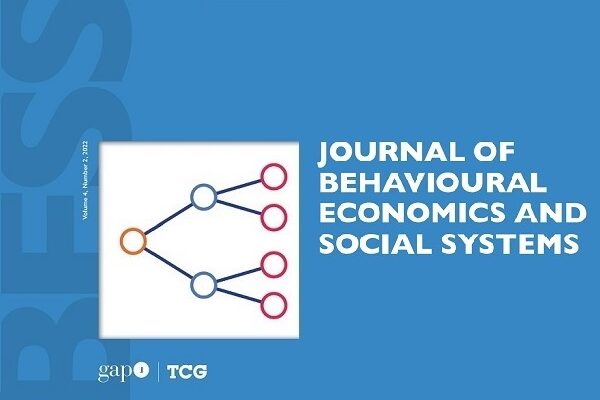Journal of Behavioural Economics and Social Systems (BESS)

This article is the foreword by Peter Fritz AO to the new edition of BESS – the Journal of Behavioural Economics and Social Systems published by Global Access Partners. GAP also publishes Open Forum.
Global Access Partners has developed its distinctive Second Track methodology over the last 25 years to circumvent the institutional rigidities and siloed processes which hinder the consideration and implementation of effective solutions to the many ‘wicked problems’ facing society.
In a traditional ‘first track’ cabinet meeting, ministers are offered papers on three predetermined recommendations to address a particular issue. They then vote for the option – usually the second – they wish to proceed after brief, and even perfunctory, discussion. Meeting agendas are fixed and so their outcomes are predictable, with cabinet rubber-stamping a decision to which a great deal of work has been dedicated beforehand.
This ostensibly efficient process discourages insights and objections from other interests and departments which may be affected, meaning well-intentioned policy often generates unintended consequences which more rounded discussions and co-design could have highlighted and addressed.
The Second Track reverses this workflow, exploring a topic through free-flowing discussion over a series of meetings among individuals with broad practical experience of life. Rather than follow a pre-set agenda, or represent their organisations or departments, participants share their insights and experiences as individuals, before generating and agreeing potential solutions they are willing to implement themselves.
These two distinct processes inevitably produce different results. Cabinet tends to be an exercise in compliance, with alternative ideas discouraged and higher ranks holding sway. The Second Track is more flexible and creative, encouraging individuals to share their ‘dangerous idea’, rather than succumb to convention, career calculation or groupthink.
Just as behavioural economics reinvigorated abstract economic theory with observations of real-world human psychology, so the Second Track approach has proven its potential to improve decision making across business, civil society, and government. It fosters creativity and collaboration rather than “small c” conservatism and compliance, and so can offer hope where traditional approaches have stumbled.
GAP’s recent agreement with Nobel Prize Outreach to hold a Nobel Prize Dialogue Sydney on The Future of Decision Making will create a broader international forum to explore the neuroscience of individual thought and mechanics of group interaction. The Dialogue’s thought leaders, presenters and participants will include Australian and international Nobel Prize laureates, political, cultural, academic and corporate experts and active young changemakers to ensure long-term impact.
The Nobel Prize Dialogue Sydney will open with a virtual pre-event in June 2023 for over 100 select participants, with three plenary sessions led by a focused thought leader panel, followed by a free-flowing Chatham House debate. With a high-level Steering Committee to advise on content, topics and speakers and an experienced event management group to oversee planning, communication and operations, these cross-disciplinary dialogues will turn good ideas and intentions into concrete results.
The Sydney Dialogues should also promulgate the Second Track method to its participants, encouraging its adoption in day-to-day management as well as strategic decision making in communities, cities, companies and nations around the world.
Just as the free market and democracy maximise the flow of information in societies to generate wealth and address public needs and concerns, so the Second Track offers organisations a better way to gather, assess and act on information to improve their own operations and results.

Peter Fritz AO is Chairman of Global Access Partners and Group Managing Director of TCG. He chairs a number of influential government and private enterprise boards and represented Australia on the OECD Small and Medium Size Enterprise Committee.












